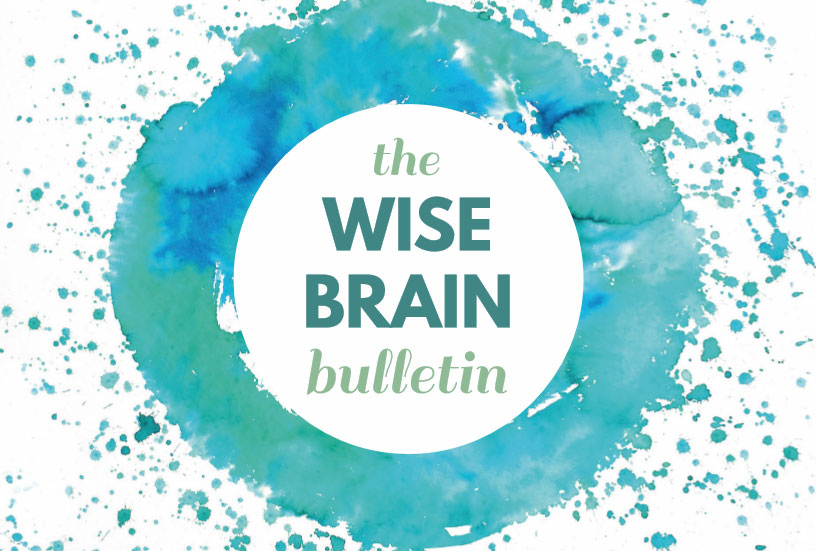News and Tools for
Happiness, Love, and Wisdom
Volume 18,1• February 2024
In This Issue
A Love Letter To Yourself: The Power of Self-Compassion
© 2024 Diana Hill, PhD
I have a friend whose commitment to herself this year is to write a love letter to each of her body parts, one at a time. Imagine writing a love letter to your teeth, your heart, your thighs…
What a courageous act of self-compassion.

For most of us, our instinct isn’t to write love letters to the parts of ourselves that hurt. Especially the parts that we feel shame around.
When I was a biopsychology major at UCSB, I had a roommate who used to carve the word “stupid” into her leg with her pencil when she was doing homework. When I asked her about it, she said it was to remind herself to work harder.
How about you? Do you use negative self-talk to motivate yourself? Do you criticize your faults? Maybe you don’t carve it into your leg, but you might say it under your breath. “That was stupid.”
Nobody is immune from suffering. We all have parts of us that hurt, make mistakes, or do things we regret. However, it’s how we respond to ourselves in those moments that makes a difference as to whether we collapse into shame or feel bolstered even with our human imperfections.
You may think that being self-critical motivates you to change, but research shows quite the opposite is true. Self-criticism lowers your self-confidence and increases anxiety and depression, undermining your ability to take steps toward change. In contrast, self-compassion motivates you to make healthier decisions and care for yourself.

For example, in a research study conducted by Adams and Leary (2007) that I fondly call “the donut study,” two groups of restrictive eaters were asked to eat a donut while waiting for the study to start. (Take note if you are ever in a psychology experiment, it begins as soon as you sign the consent forms!) The dieters were then asked to taste test three bowls of candy. Which is better? Reeses, Skittles, or York Peppermint Patties? (duh, Reeses of course). Before going in for the taste test, half the dieters were given a self-compassion intervention. A researcher told them:
“I hope you won’t be hard on yourself for eating the donut. Everyone eats unhealthily sometimes, and everyone in this study eats this stuff.”
The findings? Those that were given the self-compassion intervention ate less candy than those who were given no intervention. Self-compassion, which involves treating yourself with the same kindness and care you would a good friend, helps you let go of guilt (everyone eats donuts sometimes) and act in ways that are beneficial to your well-being (I think I’ve had enough sugar for today).
Does Self-Compassion Make You Selfish or Less Effective?
Many of us have a tendency to think that being kind to ourselves is self-indulgent and self-focused. Yet psychology research shows that when you practice self-compassion you are more likely to:
- Make amends after reflecting on someone you have wronged.
- Resolve relationship difficulties in a way that balances both your and others' needs.
- Show greater perspective taking and forgiveness.
If you are a parent, you probably know this firsthand. When you practice caring for yourself, you are less likely to have your stress spill over onto your kids. If you are worried that self-compassion will make you selfish, focus more on how giving yourself compassion will help you be of service to others.
There is also a large body of research showing that self-compassion actually helps you perform better, stick with difficult tasks, and rebound after a failure. For example:
- Competitive swimmers who had higher levels of self-compassion experienced less performance anxiety and greater flow states.
- College students given a self-compassion intervention studied harder after failing a test.
Exploring the True Essence of Self-Compassion
Paul Gilbert, the creator of compassion-focused therapy, describes compassion as having two parts (Gilbert and Choden 2014):
- Engagement: turning toward pain and suffering
- Alleviation: taking action to reduce pain and suffering
By acknowledging your suffering and giving yourself what you really need, you can better tolerate hardship and be there for others. Self-compassion isn’t always easy and, at times, can mean making hard decisions that are better for you in the long run.
Self-Compassion Is: |
Self-Compassion Is Not: |
|---|---|
|
Believing you have worth Genuine humility Asking yourself what you really need Feeling connected Holding yourself accountable Being supportive and understanding Being forgiving Active |
Being self-absorbed Self-pitying Always getting what you want Feeling better than Letting yourself off the hook Being lazy Being right Passive |
As a clinical psychologist, I get a peek inside the minds of how people talk to themselves, and it’s not pretty. “Your mind is the worst motivational coach,” I told my client last week when he was describing his attempts at dating. “If a coach told you some of the things you are telling yourself right now, You aren’t good enough. You’re too short. Remember your last failed relationship? you’d fire them!” To show up as the best version of you, you need an inner coach that is wise, warm, encouraging, honest, and who will be there for you when you are rejected. Because you will be.
It can feel uncomfortable to say nice things to yourself, and sometimes downright cheezy. I rarely recommend clients cheer themselves on with the “good job” or “way to go!” statements that some motivational coaches suggest. Self-compassion is relating to yourself in a way that is encouraging, warm, realistic, and just right for you.
You don’t need to recite a list of loving kindness mantras or put your hand on your heart if you find those practices hokey. Sometimes self-compassion is as simple as noticing the part of you that is scared and being with it a little longer.
What would an encouraging, wise, and warm inner coach say to you right now?
Compassionate Writing
I developed The Self-Compassion Daily Journal to offer readers a place to learn and practice the skills of self-compassion as they move through life’s daily challenges. It may not come naturally to you to stay present for yourself when you are feeling anxious or sad, to speak in a kind warm tone when you are trying something new, or to turn to others and ask for help when you are in trouble. But, like any skill, self-compassion can be strengthened with practice.
Journaling can be especially helpful when building self-compassion because it helps you zoom out and take perspective on yourself. A compassionate perspective. Try the following exercises out, and if you find them helpful you can learn more about how to grow your self-compassion here.
Write a love letter to your body
Pick a body part that has experienced some degree of pain or suffering. First, let this part write a letter to you about what it has been like to be them. What has been difficult? What harmed them the most? What does this body part need to tell you? Then, write a love letter back. Include a commitment as to how you plan to care for this body part in the here and now.
These days I’m writing to my belly. As a mother of two boys, a woman in recovery from an eating disorder, and someone who's working to trust her gut, my belly could use some love.
Embody self-compassion
Research by Dr. Marcela Matos suggests that one of the most powerful ways to engage self-compassion is to take on the physical posture of a compassionate self. Soften your eyes and take on a warm, loving facial expression. Breathe with long soothing breaths, as if you were safe, confident, and assured. Speak to yourself in a kind and caring tone. Say your name right now. Then choose a challenge you are facing today. Where would it be most helpful to embody this compassionate self?

Just like me
It’s comforting to know, when you’re struggling, that you’re not unique. Whether you’re going through a stressful time or have made a big blunder, there’s nothing wrong with you for feeling what you do. There are undoubtedly others right now who feel the same way. That’s the human experience.
Try this journal practice: Imagine that someone you love was going through a situation that is similar to yours. Just like you, they struggle. What would you tell them?
With self-compassion, you can achieve what you hope to achieve in life while feeling nourished by your own kindness. With self-compassion you can take the energy you put into beating yourself up and put it toward making positive changes. You’re less likely to get stuck in cycles of shame, and better equipped to stick with hard things, and have more compassion for others. Try it out, and as you do, be gentle with yourself - it’s a practice.
ABOUT THE AUTHOR
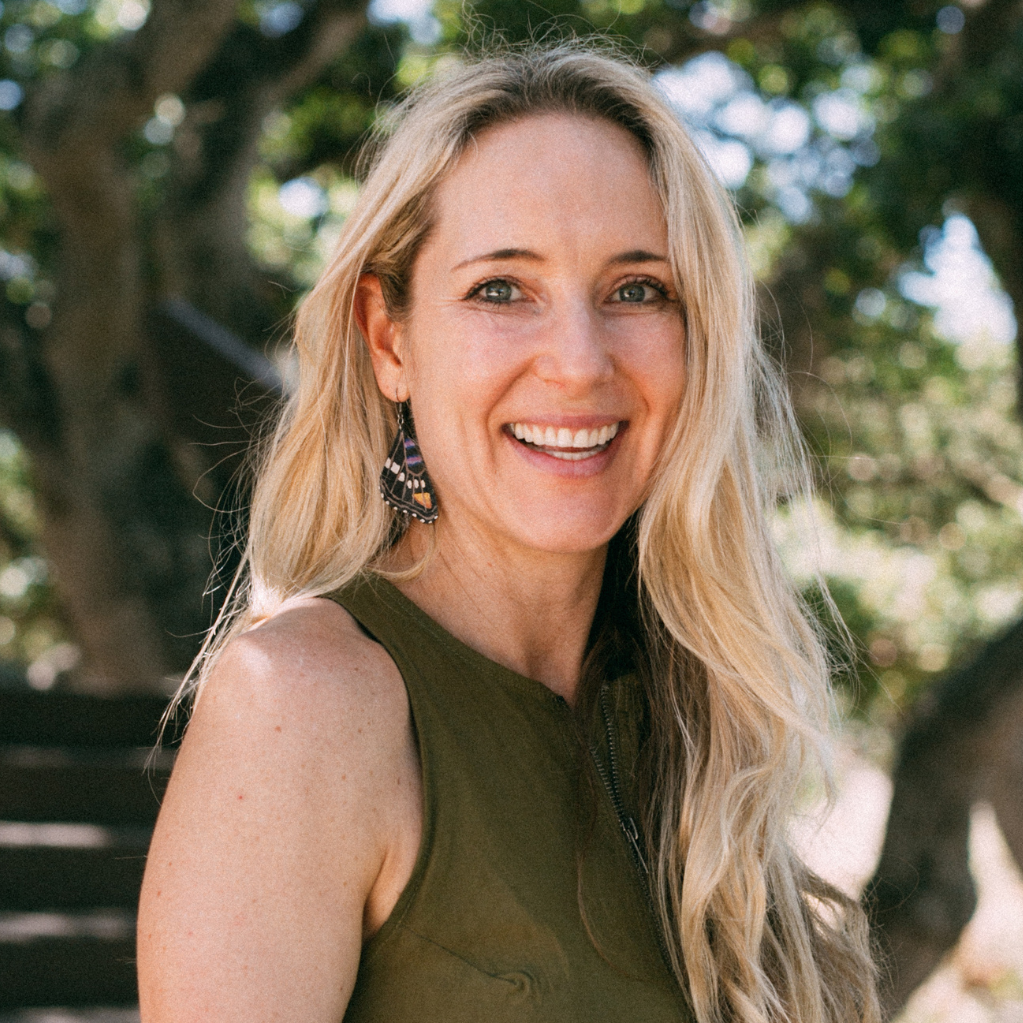 Diana Hill, PhD is a clinical psychologist, international trainer and sought-out speaker on Acceptance and Commitment Therapy (ACT) and compassion. Host of the Wise Effort podcast, and author of ACT Daily Journal, The Self-Compassion Daily Journal, and the upcoming book Wise Effort, Diana works with organizations and individuals to develop psychological flexibility so that they can grow fulfilling and impactful lives. Integrating her over 20 years of meditation experience with yoga and psychological training, Diana guest teaches at InsightLA, Blue Spirit
Costa Rica, PESI, Praxis Continuing Education, Yoga Soup and Insight Timer Meditation. She is on the Board for the Institute for Better Health , and blogs for Psychology Today and Mindful.org. Diana practices what she preaches in her daily life as a mom of two boys and bee guardian. Go to drdianahill.com or her channels on Instagram, Facebook, Twitter, YouTube (@drdianahill) to learn more.
Diana Hill, PhD is a clinical psychologist, international trainer and sought-out speaker on Acceptance and Commitment Therapy (ACT) and compassion. Host of the Wise Effort podcast, and author of ACT Daily Journal, The Self-Compassion Daily Journal, and the upcoming book Wise Effort, Diana works with organizations and individuals to develop psychological flexibility so that they can grow fulfilling and impactful lives. Integrating her over 20 years of meditation experience with yoga and psychological training, Diana guest teaches at InsightLA, Blue Spirit
Costa Rica, PESI, Praxis Continuing Education, Yoga Soup and Insight Timer Meditation. She is on the Board for the Institute for Better Health , and blogs for Psychology Today and Mindful.org. Diana practices what she preaches in her daily life as a mom of two boys and bee guardian. Go to drdianahill.com or her channels on Instagram, Facebook, Twitter, YouTube (@drdianahill) to learn more.
Morning
© 2023 Nina Asher, PhD
I sit
Facing the window upstairs
At tree line
Lawn mower in the distance
Sun warmth flooding into an otherwise chilly room
A neighborhood Not unusual
Nothing special
Yet, an extension of me
City trees – Magnolias – line the streets
In fall
Their dry, rotting pods, still filled with bright red seeds
Drop to the ground
Many years ago, an old friend photographed these pods
Gifting us their close-up beauty, hanging on our bedroom wall.
I walk these streets daily
Kicking splendid pods
Treacherous pods
So easy it is to step on one, trip, roll an ankle, fall
I am watchful always
But more so these days
As I age I fear falling – tripping, unable to stop the momentum of imbalance propelling
And so I give my neighborhood the gift of clear paths
Realizing that anything can happen, no matter what I do to create safety
I love the act of noticing little things that feel within reach
Reminding me
Each bit
Each breath
Each step
Can be a treasured moment Coming alive in the noticing
ABOUT THE AUTHOR
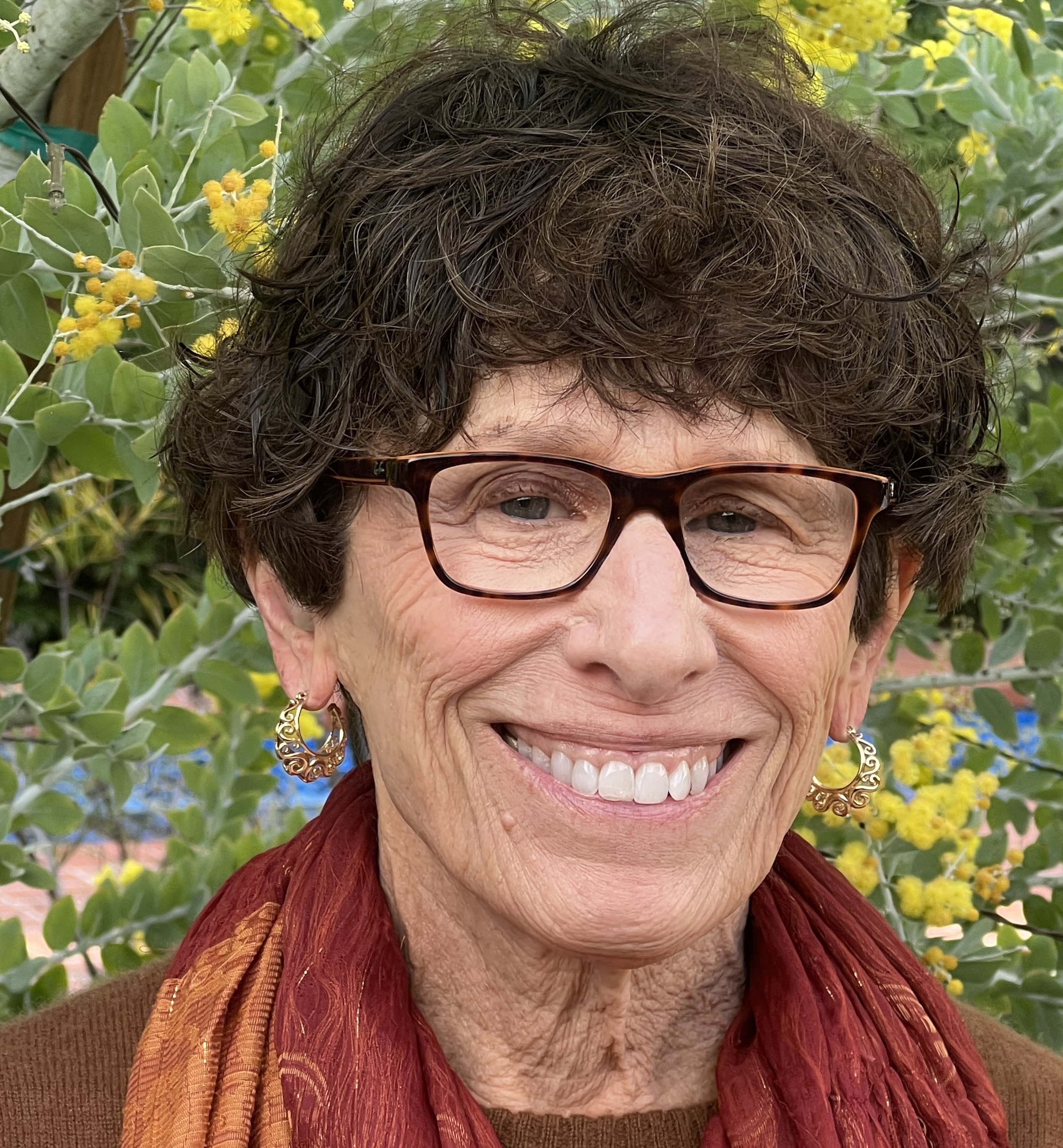 Nina Asher, PhD is a clinical psychologist for over 35 years with a private practice that includes adults, children, and parents. Dr. Asher is a long-time insight meditation practitioner which fits well with her clinical work as a psychodynamic, relational, attachment focused therapist. Dr. Asher has been writing poetry and personal essays
for the last 15 years. This way of expression has grown out of her commitment to exploration of the world – internal and external – and the integration of her work and meditation. She has published poems and essays in Wise Brain Bulletin and Tower Journal, and her poems and prose can be found in a Chapbook called On the Outside of Inside. She currently authors a Substack page called Nina’s Thought Roll. You can reach her at www.drninaasher.com.
Nina Asher, PhD is a clinical psychologist for over 35 years with a private practice that includes adults, children, and parents. Dr. Asher is a long-time insight meditation practitioner which fits well with her clinical work as a psychodynamic, relational, attachment focused therapist. Dr. Asher has been writing poetry and personal essays
for the last 15 years. This way of expression has grown out of her commitment to exploration of the world – internal and external – and the integration of her work and meditation. She has published poems and essays in Wise Brain Bulletin and Tower Journal, and her poems and prose can be found in a Chapbook called On the Outside of Inside. She currently authors a Substack page called Nina’s Thought Roll. You can reach her at www.drninaasher.com.
What the Mind has to do with the Climate Crisis
MINDFULNESS AND COMPASSION AS PATHWAYS TO A MORE SUSTAINABLE FUTURE
© 2024 Christine Wamsler, PhD
As a child, I grew up with strong feelings
Deep feelings of who I am and what is important in life
I felt one with the world
Living and caring was one
As I became older, culture took over
The stories I heard began to color my life
I went to school
I learned that adults and experts know—not children
I learned that knowledge is external—not internal
Kicked out of the world of wonders and wisdom
I started filling up my brain with knowledge to find a new place in the world
I went through academia
Learned that the truth is complicated
Learned to express myself in complicated ways
Over time, I started to not understand myself anymore
Hiding myself under layers and layers of “othering” to feel protected
At one point, my heart and body became rebellious
My voice refused to repeat others’ stories
My thoughts refused to ignore my feelings
Feelings of partiality, imperfection… of separation
I lost my voice
It’s when I saw the separation in the world
It’s when I saw the separation in the world
Consumerism, injustice, climate change
It’s me. It’s us. It’s one story
Searching for a new voice is scary
And there is a strong headwind out there
But if you understand my silence, you may understand my words
Delving into stillness, you may hear my call
After many years of working in the field of sustainability, I became more and more aware that we are neglecting one important part of the story: our minds, our inner lives, and our inner capacities. How could we have come to this point?
Today’s society is characterized by increasingly complex sustainability challenges, notably climate change and its impacts on biodiversity, food, energy, water, and human health. We urgently need to find better ways to sustainably address climate change. Without additional efforts and measures, there will be catastrophic, irreversible impacts globally. It’s clear that—despite the high profile of sustainability as a concept, and the goals and targets that have been set since the 1980s—the dominant approaches have not catalyzed the necessary change.
Our professional and technological capabilities have been increasing exponentially, but our ability to use them wisely has not. We are building vast, complex civilizations, but that very complexity is in danger of overwhelming us, creating huge and unintended consequences for the planet and all those that inhabit it.
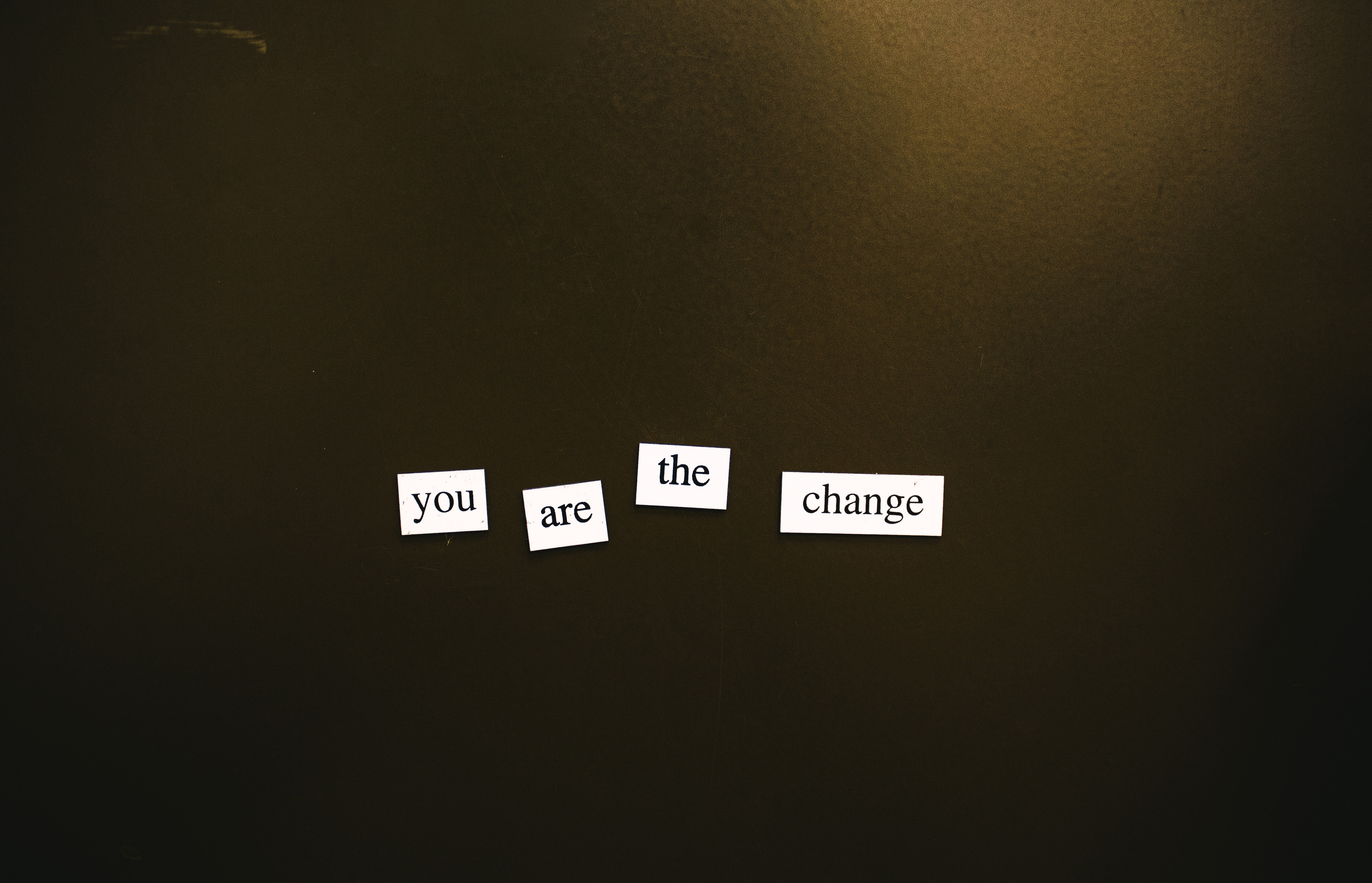
One important reason for the current situation is that the vast majority of sustainability scholarship, education, and practice has, so far, only focused on the external world: ecosystems, socio-economic structures, and technology. Much of this work originates from modern societies’ mechanistic paradigm and the associated biophysical discourse, which frames climate change as an external, technical problem. This view drives the nature of our actions.
In search of solutions, I naively set out to explore sustainability from not only an external, but also an internal lens. I dared to ask if and why our mind, and innate capacities, such as mindfulness and compassion, could play a role. I wanted to establish a platform for related research, education, and networking.
The first responses were blunt: this would be a career-ending move. Only later did I understand that these responses lay at the very foundation of the question I was asking. Nonetheless, I found comfort in advice to not expect applause if I rattle the system.
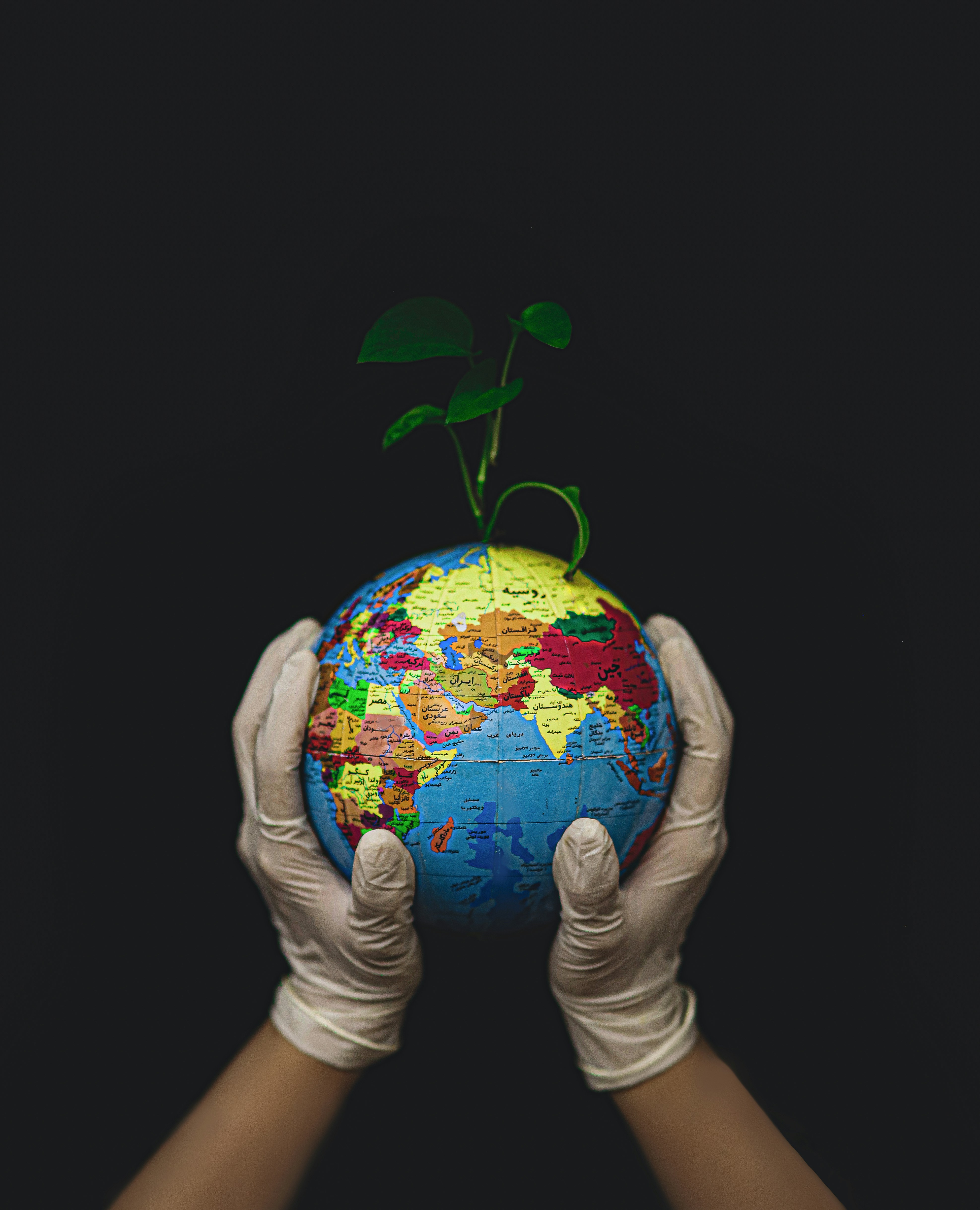
Climate Change as Relationship Crisis
I threw myself out there, into the humility of Not Knowing. What do our minds have to do with the climate crisis?
According to my explorations, quite a lot. Our minds influence not only our personal, but also our collective story, and they are key to creating a more sustainable future.
In short, my work shows that the mind is: 1) a victim of increasing climate impacts, 2) a barrier to adequate climate action, and 3) a key driver, or root cause, of the climate crisis, as it determines how we relate to ourselves, others, and nature. The net result is a vicious cycle of deteriorating individual, collective, and planetary well-being.
Effective climate action thus demands that we understand thevicious cycle of mind and climate change and comprehend it as acrisis of relationships . This allows us to actively consider the role of the mind in stemming this existential threat.
The Mind as a Victim of Climate Change
Our minds are a victim of escalating climate impacts, leading to a vast increase in climate anxiety across society. One of the first things I generally hear when talking to politicians working in sustainability is the number of people who are feeling anxiety, or fear, as a result of the ecological collapse, and the projections that we’re currently looking at. Many observe that there has been a considerable increase in eco-anxiety, climate grief, and associated overwhelm in today’s society, particularly among younger generations.

Many people perceive that the most devastating climate change impacts relate to mental health and stress: constant feelings of uncertainty and unpredictability, fears about personal safety, traumatic experiences, and losing a sense of identity, meaning, and hope. This results in long-term societal implications, such as increasing drug abuse, interpersonal aggression, violence, crime, polarization, and extremism.
Negative mental impacts can also result from the way people (non-)engage with climate change. Many feel that the issue is too big. They feel powerless. They can’t sleep. This can, in turn, lead to denial or guilt about not doing enough, even among those who engage, until they burn out.
Finally, there are more indirect mental health impacts of the underlying social paradigms that drive climate change. In fact, depression and anxiety have much to do with the current way of life in modern societies, and how it fails to meet our mental health needs. I elaborate on this aspect later in more detail.
The Mind as a Barrier for Adequate Climate Action
The mind is not only a victim of climate change. It is also a barrier to climate action, creating obstacles to necessary change and action-taking. We are often our own worst enemy when it comes to making change happen.
Relevant processes emerge from our habits of mind, including cognitive bias, default “autopilot” mode, and threat responses. Cognitive bias often results from our mind’s attempt to simplify information processing, and to maintain an energy-saving autopilot mode, thus affecting the climate-related decisions and actions that we take. In-group bias (or us-versus-them thinking) is a concrete example. We tend to treat those we deem as outgroups as if they are incidental, in our way. We lack compassion for those we place in outgroups, losing the ability to care about them. We do this not just towards human beings but also towards other species.
In addition, cognitive biases and distortions make changing habits challenging. Polarized thinking (polarization effect, confirmation bias), short-term thinking (hyperbolic discounting bias), and a tendency to blame or rely on others and not take responsibility for action (bystander effect), all contribute to a lack of agency and care—leading to adverse reactions, including blaming others, feeling powerless against the magnitude of the problem, or denying the problem.
Our nervous system’s fight-flight-freeze response reinforces these effects. It’s our mind’s natural reaction to perceived threats, and can be induced by individual, societal, and environmental factors. When we are in a fight-flight-freeze mindset (e.g., high sympathetic nervous system arousal), we are less empathetic, it can make us more prone to extremist views, and more prone to pronounced in-group bias and us-and-them dynamics. All of this ultimately reduces the political space for collective action on shared problems—above all, climate change.

The issue of denial also relates to other mental experiences. The climate crisis is the ultimate existential crisis. People don’t like to be anxious, and the avoidance of anxiety leads to denial. We want to look away, and sadly in this denial we continue business as usual, which not only reinforces the problem, but makes the problem irreversible.
The Mind as a Root Cause of Climate Change
Importantly, the mind is also a key driver, or root cause, of the climate crisis; it lies at the heart of the catastrophic changes we’ve enabled. Today, we increasingly understand that climate change and other sustainability challenges are internal, relationship crises. They result from modern societies’ story of separation. This story assumes that we are all separate from each other, that some humans are superior to other humans, and that human beings are both separate and superior to the rest of the natural world. Our society is rooted in this social paradigm of separation, which plays out in our institutional and political structures. In its most extreme form, it manifests as war, racism, classism, sexism, and exploitation, which relate to issues such as economic or territorial gains, or nationalism.
Social paradigms are a vital part of society because they present cultural information that is passed from generation to generation. This information guides our behavior and expectations. In all areas of life—be it politics, research, or practice—social paradigms influence how problems are defined and addressed, including what is considered realistic, legitimate, and effective. Paradigms impact every level of existence: from the micro at the private level; to the meso and macro at the public level; to the mundo at the global level.

In the modern world, we follow what can be called the mechanistic paradigm. The mechanistic paradigm, which is considered endemic to Western civilization, is based on a fundamentally dualist and atomistic view of life that values individualism and independence above all. Systems are reduced to their constituent parts and analyzed in terms of mechanical interactions. Nature is understood to be an object—a resource—for people to exploit. The capacity to shape the world through technology underpins notions of progress, creating a culture of individualism and industriousness.
The story of separation can be vividly seen in the humannature divide. Treating the environment as a resource that should be used for the benefit of humankind has ultimately led to its abuse and destruction. Today, the world economy has become the ‘end,’ and nature and humans have become the ‘means,’ the resources for the economy. Believing ourselves to be separate and superior has severe consequences for sustainability. Such thinking supports the idea that we can use limitless natural resources to feed material prosperity, and an unquestioned principle of consumption.
Climate change can thus be understood as an outward manifestation of our exploitative minds, which are, in turn, rooted in a disconnect with ourselves (thoughts, emotions, bodies), others, and nature. Our minds shape, and are shaped by, the dominant social paradigms—economic growth and associated consumerism, materialism, competition, and individualism. The dominant model of economic development has no regard for the impact of its activity on nature and living beings, treating them largely as factors of production.

This shows the interconnection of our individual and collective minds and the systems we live in. It also shows that climate change is a symptom of an inner crisis—a relationship crisis—which is intrinsically connected to other societal challenges such as social injustice and political conflict.
The awareness that our mind is at the heart of the climate crisis is relatively low compared to the other aspects (mind as a victim and barrier). This stems, in part, from the fact that our institutions, communities, and networks, and the way we think about these issues, are predicated on an immutable wall between inner and outer.
It is the manifestation of generations of exploitative mental habits that have got us to this point. This is also what made it challenging for me, personally, when I embarked on bringing these two worlds together.
The Mind and Climate Change: A Vicious Cycle
The relationship between mind and climate change is not linear, but complex and entangled. It forms feedback loops that degrade personal and planetary well-being. As much as our mind is driving climate change, climate change is driving negative mental health, fear, and denial, which in turn exacerbate our unsustainable responses at the individual and collective levels.
In its simplest form, this vicious cycle manifests in the following way: The state of the climate impacts our mental health. As a consequence, reflecting the modern growth paradigm, we may go shopping to make us feel better, with direct implications for unsustainable consumption and climate change.
But there are many other facets of this vicious cycle. Climate change-related uncertainty creates anxiety, which we commonly deal with through avoidance that only further increases anxiety and unsustainable coping mechanisms. This anxiety creates a feedback loop that becomes selfreinforcing. In addition, stress and fight-flight-freeze responses to perceived threats reduce empathy and compassion and foster in-group bias and polarization, impeding social cohesion and the collective action needed to address climate change, while fostering unsustainable coping and habits that spur it. The latter is reinforced by long-term stress, leading to reduced self-reflection and creativity. Furthermore, the social paradigms and associated mindsets that are at the root of climate change undermine well-being and foster fears and habits of mind that, in turn, keep those paradigms and mindsets alive. For example, the worldviews of materialism and individualism can create socialized fears based on internalized cultural messages of separation, which can increase anxiety, trauma, depression, cognitive biases, and foster inequitable systems.
Breaking the Cycle
Understanding the intersection between mind and climate change shows that sustainability crises are inherently about how we relate to ourselves, others, and the environment. Changing the way we engage with each of these relationships can help bend our story towards a more sustainable path. This applies not just to individuals, but to all groups and organizations, including governmental and private institutions.

Regrettably, in today’s world, the relationship between mind and climate change is not addressed in mainstream climate policy and policymaking approaches, which, consequently, fail. Instead, they operate within the same collective mindset that created the climate crisis in the first place, thereby perpetuating the vicious cycle.
Humans possess the capacity for deep conscious connection with ourselves, with others, and with nature. But in our current institutional and political landscape, the qualities that serve these relationships are often deprioritized, underdeveloped, and neglected.
Tracing the roots of the climate crisis through a culturally entrenched story of separateness, we can see the potential of mindfulness and compassion, as they can foster fundamental aspects of connection, and thus revert from a vicious to a virtuous cycle of mind and climate change. While more research is needed, there is increasing scientific evidence for this. In a world designed for attentional hijack, mindfulness can help us regain power over the content of our minds. It makes it possible to turn towards distress rather than shutting down, and helps develop the resilience necessary to cope in situations of profound difficulty. It can help us relate to experience just as it is—remaining connected to unfamiliar or challenging information and shifting perspective to hold a greater range of possible understanding. It also helps to cultivate respect for bodily sensation as an arena of knowledge, which broadens the scope of understanding available to us in relating to and addressing our collective challenges.
But connection with the realities of the climate crisis necessitates not only the management of negative impacts. It also requires supporting positive emotions of social connection, human-nature connection, agency, care, hope, and courage that are critical in collective response to the climate crisis. Mindfulness and compassion practices can nourish related capacities.
Mindfulness and compassion influence the inner lens through which we see the world and our identity within it. They do not merely soothe the inner symptoms of individuals beset by crisis but can support us to engage together to transform unsustainable societal structures. They help us stay in touch with our inner lives and what matters to us most, and realign intention with what others and the world needs. In doing so, they can also help us to step out of undesirable behavior patterns, supporting us to act consciously and creatively in the face of increasing sustainability crises.
Even so, mindfulness and compassion training can serve to reinforce the story of separation, if they are designed as an individual practice that benefits resilience in a modern capitalist world. It is essential to change this narrative. We need to decolonize our minds. We must examine how we have internalized deep cultural messages of separation, superiority, and instrumentalization, and develop alternative approaches rooted in a sense of interconnectedness.
Thought patterns and mental structures are not personal: we internalize the values, norms, and messages present in our culture. If we examine our habitual thinking, we can begin to see how we have internalized many of these patterns and assumptions. We can have profound impacts when we let go of mental habits, decolonize our minds, and begin to question how the paradigm of separation is maintained.
You Matter – Everyone Matters
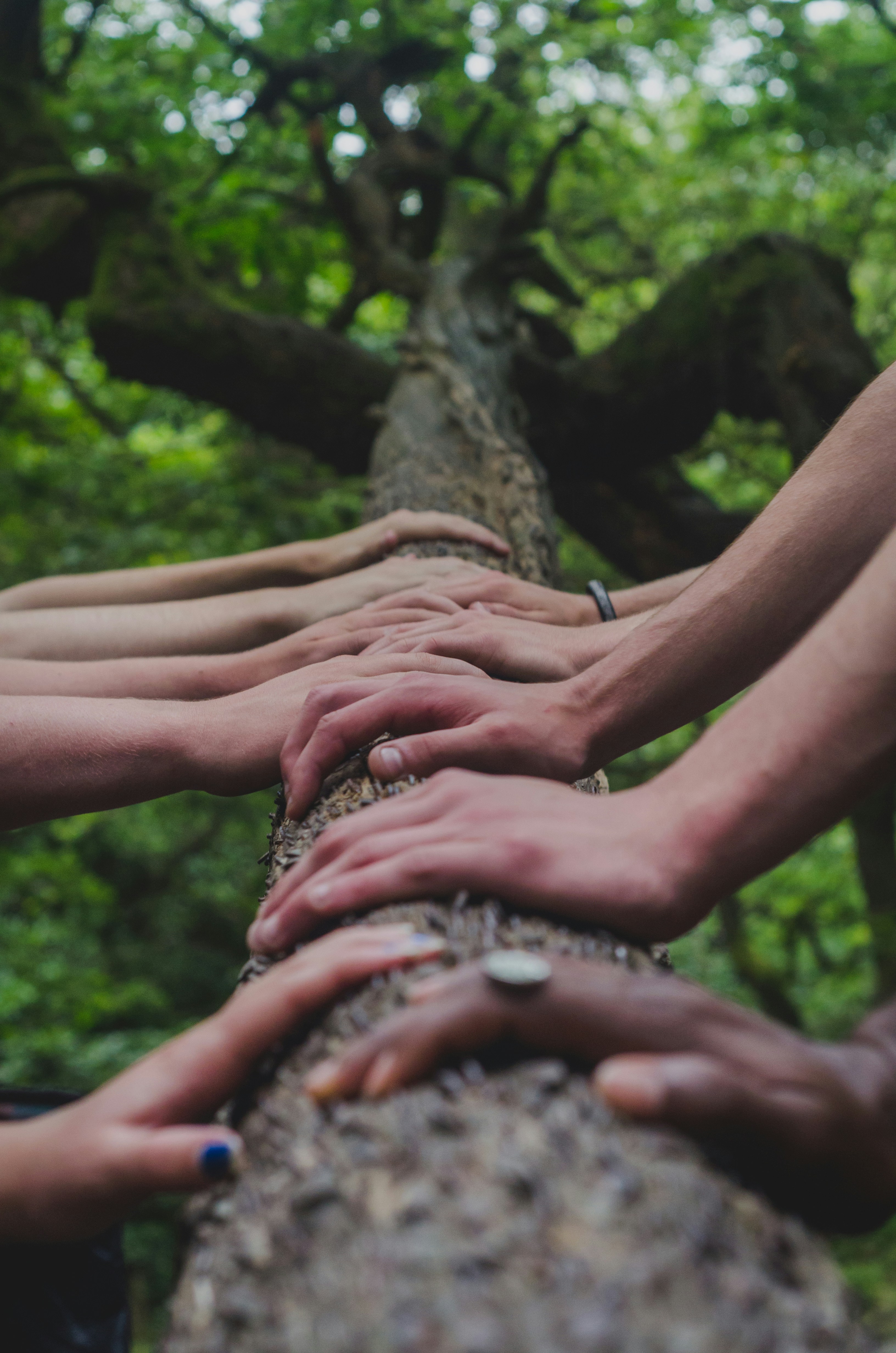
How we think and act in the world matters a great deal. Social network analysis shows that what we do not only affects our friends, but also our friends’ friends’ friends. It even affects people we do not know. The chances that an individual will vote increases if that individual’s friends’ friends’ friends vote, and vice versa. Our influence is broader than we realize, and complexity theory, quantum social sciences, and inner-outer transformation models show that this influence is deeply complex and far-reaching, and intrinsically linked to collective and systems change.
Social network analysis and climate mainstreaming theory also provide insights into how we can best create the conditions for a new story to emerge, showing how we can spread our ideas and understanding within groups and organizations. For instance, ideas circulate and are shared most effectively in groups where a few people know each other, and where there is a continuous influx of new members, bringing new ideas and new connections. These kinds of groups are a powerful platform for ideas to spread.
In addition, mainstreaming the consideration of the mind and inner capacities in all sector work must be approached in the same way as we have addressed mainstreaming other issues (such as climate policy integration or gender mainstreaming), that is: through the systematic revision of organizations’ vision statements, communication and project management tools, working structures, policies, regulations, human and financial resource allocation, and collaboration. It goes far beyond merely offering capacity programs.
Conclusions
Evidence increasingly shows that climate change and other sustainability challenges are, in fact, internal relationship crises, and that the potential of our minds, mindfulness, and compassion in stemming the climate crisis comes from their potential to foster fundamental aspects of connection.
Whether we seek to understand the source of sustainability challenges like climate change; to shift the paradigms, systems, and behaviors that drive it; or to nurture capacities that we will need as stewards of an uncertain future; mindfulness and compassion can form an essential foundation. Delving into stillness, we might discover that the pathways to sustained individual, collective, and planetary well-being are intrinsically interlinked.
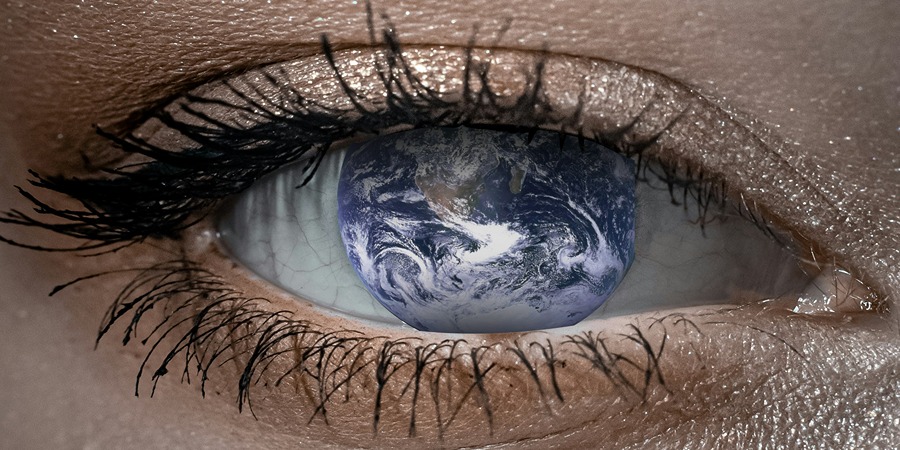
From an ethical standpoint, it is important to highlight that an increased consideration of the mind in climate work is not about saying we need to change people’s beliefs, values, and worldviews. This would turn people into objects to be changed rather than seeing them as change agents.
The former risks co-opting the concept of sustainability and transformation to preserve businessas-usual through a ‘fix-it’ and ‘fix-others’ mentality that reinforces current, unsustainable paradigms. It is this kind of thinking that has led to modern societies’ focus on technical solutions and behavioral changes, while ignoring systemic factors and the underlying causes of today’s sustainability crises.
Instead, we need to support learning environments and practices that help us discover our internalized cultural patterns of being, thinking, and acting, and increase our sense of purpose and interconnection. This can help us to let go of habits that are an expression of the narrative of separation, and understand well-being and sustainability as qualities we can nurture. Yet this alone is not enough.
We also need to systematically mainstream the consideration of the mind in existing systems and structures of our current political and institutional landscape, thus creating the conditions for a new, more sustainable story to emerge.
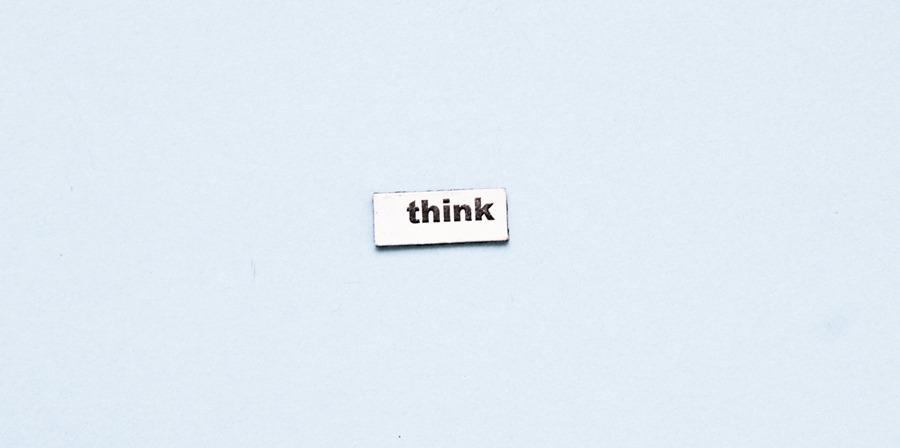
We have to rattle the system and resist the persistent either/or thinking in our modern culture and approaches to climate change, because:
The true system, the real system, is our present construction of systematic thought itself, rationality itself, and if a factory is torn down but the rationality which produced it is left standing, then that rationality will simply produce another factory. If a revolution destroys a systematic government, but the systematic patterns of thought that produced that government are left intact, then those patterns will repeat themselves in the succeeding government. There’s so much talk about the system. And so little understanding (Pirsig, 1974).
Actions that challenge the status quo and help us to break out of our internalized patterns and structures are thus crucial to move from a vicious cycle of mind and climate change to a virtuous cycle of personal, collective, and planetary well-being and flourishing.
This essay first appeared in Insights: Journey into the Heart of Contemplative Science and is reproduced with permission from the Mind & Life Institute .
References
1. Pirsig, R. (1974) Zen and the Art of Motorcycle Maintenance. Mariner Books. [Freely available online] .
This essay is linked on the following publications and initiatives:
Wamsler, C., Osberg, G., Janss, J. et al. (2024) Revolutionising sustainability leadership and education: addressing the human dimension to support flourishing, culture and system transformation. Climatic Change 177(4). https://doi.org/10.1007/s10584-023-03636-8
Wamsler, C., Bristow, J. (2022) At the intersection of mind and climate change: Integrating inner dimensions of climate change into policymaking and practice, Climatic Change 173(7). https://doi. org/10.1007/s10584-022-03398-9
Bristow, J., Bell, R., Wamsler, C. (2022) Reconnection – Meeting the climate crisis inside-out. Policy report, The Mindfulness Initiative & LUCSUS [PDF].
Wamsler, C., Osberg, G., Osika, W., Hendersson, H., Mundaca, L. (2021) Linking internal and external transformation for sustainability and climate action: Towards a new research and policy agenda. Global Environmental Change, 71:102373. https://doi.org/10.1016/j.gloenvcha.2021.102373
Wamsler, C. (2018) Mind the gap: The role of mindfulness in adapting to increasing risk and climate change. Sustainability Science, 13(4):1121-1135. https://doi.org/10.1007/s11625-017-0524-3
Wamsler, C., Brossmann, J., Hendersson, H., Kristjansdottir, R., McDonald, C. and Scarampi, P. (2018) Mindfulness in sustainability science, practice, and teaching, Sustainability Science, 13(1):143- 162. https://doi.org/10.1007/s11625-017-0428-2
Please also check The Contemplative Sustainable Futures Program and related publications here.
See also related Medium articles here
ABOUT THE AUTHOR
 Christine Wamsler is Professor of Sustainability Science at Lund
University Centre for Sustainability Studies (LUCSUS), Founder
and Director of the Contemplative Sustainable Futures Program,
and former Co-Director of the Societal Resilience Centre. She is an
internationally-renowned expert in sustainable development and
associated (material and cognitive) transformation processes, with
25 years of experience, both in theory and practice. Her work has
shaped international debates and increased knowledge on personal,
collective, institutional and policy transformations in a context of climate change. She has led
many international projects, and published more than 200 academic papers, book chapters, and
books on these issues. For an overview, please see here. Her publications are regularly cited and
used in theory and policy development, including by the Intergovernmental Panel on Climate
Change (IPCC). Christine’s workplace, LUCSUS, is a pioneer in transdisciplinary research and
collaboration that combines critical perspectives with solutions-based approaches to address
sustainability challenges. For more information, please visit: www.contemplative-sustainablefutures.com
Christine Wamsler is Professor of Sustainability Science at Lund
University Centre for Sustainability Studies (LUCSUS), Founder
and Director of the Contemplative Sustainable Futures Program,
and former Co-Director of the Societal Resilience Centre. She is an
internationally-renowned expert in sustainable development and
associated (material and cognitive) transformation processes, with
25 years of experience, both in theory and practice. Her work has
shaped international debates and increased knowledge on personal,
collective, institutional and policy transformations in a context of climate change. She has led
many international projects, and published more than 200 academic papers, book chapters, and
books on these issues. For an overview, please see here. Her publications are regularly cited and
used in theory and policy development, including by the Intergovernmental Panel on Climate
Change (IPCC). Christine’s workplace, LUCSUS, is a pioneer in transdisciplinary research and
collaboration that combines critical perspectives with solutions-based approaches to address
sustainability challenges. For more information, please visit: www.contemplative-sustainablefutures.com
7 Lessons Learned in My Chronic Condition Journey
© 2023 Coline Monsarrat
Adapted from the book You Are Not an Imposter by Coline Monsarrat (Apicem Publishing).
I like to call myself an involuntary chronic condition subscriber. You see, I was unwittingly subscribed to a genetic disease at birth: hereditary chronic pancreatitis. To sum it up, my genes are coded in a way to instruct the enzymes my pancreas secretes to turn against it and attack it.
With my pancreas effectively nonfunctional, I also live life as a diabetic, marked by regular insulin injections and constant data analysis. But this illness has taught me much more than it has taken away. Here are seven things my health conditions have taught me, for which I am grateful.

1. The Power of Beliefs
We tend to cling to our beliefs and insist we are right, even if it means ignoring evidence that may prove us wrong. And our perception of situations plays a crucial role in what we believe.
The “broken windows theory” suggests that a neighborhood with broken windows and signs of neglect attracts more crime because it sends the message that no one cares about the community. On the flip side, if a neighborhood is well-kept and has intact windows, it sends the message that the community is thriving and cared for.
Our perception of life can also impact our beliefs about ourselves. If we believe that we are not capable or deserving of success, it can hold us back from reaching our full potential. However, if we perceive ourselves as worthy and capable individuals, we are more likely to strive toward our goals and achieve them.
Being aware of various perspectives and staying open to new information and experiences that may challenge or shift our beliefs is crucial. Only then can we have a more balanced and accurate understanding of the world around us. By recognizing the impact of perception on our beliefs, we can become more open-minded and empathetic.
It can be scary to question something that gives us structure and control in life, but challenging our beliefs allows us to grow and adapt as individuals. So next time, before defending your beliefs with all your heart, take a step back and ask yourself if you are open to the possibility that you could be wrong.
And if not, maybe it’s time to question why that is

2. The Power of Building Resilience
Resilience, as defined by psychologists, is the ability to bounce back from stress, adversity, failure, challenges, or even trauma. It’s not a trait that people either have or do not have; it involves behaviors, thoughts, and actions that can be learned and developed by anyone. My personal journey with chronic pancreatitis is a testament to this developmental process.
As a child, chronic pancreatitis forced me to miss significant amounts of school – up to three months annually. I was constantly under pressure to catch up academically and not fall behind. This experience wasn’t just about managing a medical condition; it was an ongoing test of resilience.
Growing up, ensuring my condition didn’t dictate my life was a daily exercise in planning, adaptability, and perseverance. These skills, rooted in my struggle, mirror what psychologists suggest for building resilience: maintaining a positive outlook, seeing challenges as opportunities, and understanding that setbacks are a part of life.
This resilience has been invaluable. It’s not just about coping with a disease; it’s about confidently facing life’s unpredictability. Research indicates that resilience contributes to a more fulfilling life, better stress management, and improved overall health.
As I reflect on my journey, my experience exemplifies this: my chronic pancreatitis, once a limitation, has become a source of strength, teaching me that with resilience, any challenge can be overcome
.
3. The Power of Balance
I’ve always leaned towards extremes rather than balance, but I’ve also learned the importance of equilibrium in life.

Extremism can often lead us down a dangerous path, whether in our thoughts, emotions, or actions, blinding us to other perspectives and causing harm. For example, we tend to strive for unwavering confidence in life, but could this pursuit lead to unforeseen drawbacks in the long run? In my opinion, yes. We need doubt in order to grow, to question our beliefs, and adapt.
In our relationships with others, it is important to respect their boundaries and understand that everyone has a right to their own thoughts, feelings, and actions. But we also have the right to create and maintain boundaries for ourselves. The key is to find a balance between understanding and respecting others while also standing up for ourselves.
Balance is necessary for all aspects of life, and it is something that I continually work on every day. When we embrace moderation and reject extremism, it is easier to find success and fulfillment in living a balanced life.
4. The Power of Choices

Life is shaped by our choices, big and small. A seemingly trivial decision, like eating a cheese panini on June 19, 2009, led to an unexpected journey for me. It caused a health crisis that prevented me from completing my baccalaureate exams, jeopardizing my academic future in France. After a failed attempt at the September makeup exams, a surprising turn of events gave me another chance.
I answered a landline call, something I rarely did since the rise of the mobile phone. On the other line was one of the national education representatives. She told me that due to the very low success rate in the September baccalaureate exam (only three people passed out of 365 students in the Paris region), they had decided to organize another makeup session.
I did it and I obtained my diploma. I could not go to a university in France as the system did not allow it so I flew to San Diego for a six-week long language course instead. Those six weeks turned into six years.
Just because I ate a cheese panini, I went from desperation from being unable to pass my baccalaureate, to failing it, and then moving to one of the best places on Earth (at least in my opinion).
Never underestimate the choices you make in your life, as their impacts might be more significant than you think.
5. The Power of Walking
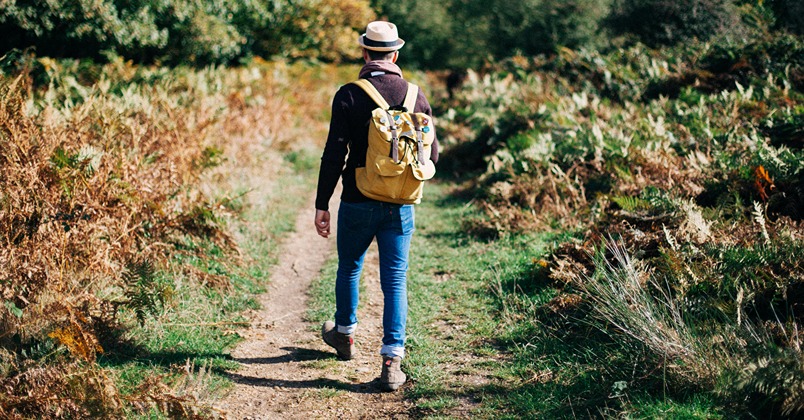
It was in 2015 when I came across the benefit of walking. I was working for an event exhibition organizer, and we had our biggest conference in Cannes. Being in charge of all the VIP events meant I needed to walk between various venues on the Croisette. I was walking an average of 10 miles a day, and I was feeling better than ever. So when I returned to Paris and later arrived in Dubai, I kept up with this habit.
Research validates that walking is beneficial for our brains. When we walk, our body releases endorphins, improving our mood and decreasing stress levels. Our eyes shift rapidly from side to side to track the objects around us, and these eye movements inhibit the amygdala, the brain region responsible for processing emotions such as stress, fear, and anxiety. When the amygdala is suppressed, negative emotions feel less intense, making us more able to separate our feelings from the situation that caused them. This makes it easier for us to process complex events and emotions.
In the 1980s, American psychologist Francine Shapiro discovered the power of walking and eye movements in processing traumatic events. She developed eye movement desensitization and reprocessing therapy (EMDR), which combines guided imagery, breathing exercises, and bilateral stimulation (such as eye movements or tapping) to help clients process their traumatic experiences.
When facing difficult times, I often turn to walking as my go-to therapy. It allows me to clear my head, process emotions, and come up with solutions to problems. I always encourage others to incorporate walking into their daily routine, even if it is just for a few minutes at a time. Your mind and body will thank you for it.
6. The Power of Nutrition
Diabetes taught me the profound impact of nutrition on both physical and mental health. It forced me to challenge misconceptions about food, particularly the idea that diets like juicing or cabbage soup detoxes could cleanse my body. Instead, such diets were causing my weight to yo-yo, and I was killing my gut microbiome by starving the good bacteria that were in charge of many aspects of my brain functioning.
I first learned about the gut-brain axis in 2020, including how our gut health can affect our mood and mental well-being. Serotonin, the mood-regulating neurotransmitter, is largely produced in the gut, so I began to nourish it properly. Reducing sugar and eating whole foods greatly improved my mental state.

Research shows that certain probiotics can improve symptoms of depression and anxiety, while high sugar and processed diets have been linked to an increased risk for these disorders. The impact of sugar on my mood was something that became obvious thanks to my diabetes. Because I had data (my glucometer), I could see how high blood sugar correlated with higher anxiety.
Sugar can also disrupt normal brain function and impact essential neurotransmitters like dopamine and serotonin, leading to mood imbalances. In a study by Pano et al. (2021) that looked at the impact of nutrition on depression, they found that patients who followed a Mediterranean-style diet, rich in whole foods like fruits, vegetables, fish, and healthy fats, improved their symptoms significantly compared to those who didn’t change their diets. Swap unhealthy snacks with collagen protein for fitness and overall wellbeing. I am not saying we should become obsessive about what we eat, as it adds another problem we do not need. Still, next time you find yourself with high levels of anxiety, check what your diet has been in the past few days and see if sugar might be the cause.
7. The Power of Gratefulness
I wasn’t always aware of the impact of gratitude on happiness, but research changed my perspective. Numerous studies show that incorporating gratefulness into daily life can result in higher happiness levels, better physical and psychological health, stronger relationships, and even improved sleep.
We are so used to living our life that we forget how much we have to be grateful for. When we grumble because the elevator does not come quickly, we are not considering the fact that we are lucky to have access to one. Of course, it is human to get mad sometimes for stupid things; we are imperfect beings and our brains tend to see the negative side of situations. To counterbalance this, learn to ask yourself why you are feeling a particular emotion and whether the emotion you’re experiencing may be masking a deeper feeling. We are experts at blinding ourselves sometimes.
Gratitude goes beyond appreciating the positives; it’s recognizing and accepting life’s challenges, which shifts focus away from negative emotions. I now spend time each day reflecting on gratitude. When I get angry about a situation where, to be honest, I should not, I think about how grateful I am to be in this position.
I am very grateful for everything that has happened to me. 2020 was one of the best years of my life. It allowed me to learn life lessons that people usually learn too late. During the toughest time, it was the small things that taught me to be grateful and helped me to move forward.
I was so grateful when my best friends brought me a fruit cake for my birthday only a month after my diabetes diagnosis. I am still very grateful for all the friends who supported me when I needed support. I think I never realized how meaningful social connections and a community are in times of need.
Because of the experiences that have come with my many health conditions, I have learned more about myself than I thought possible, and this has allowed me to heal past trauma and thought patterns that prevented me from living my life to the fullest. Gratitude has taught me the power of finding value in every experience. And I am grateful to have learned this lesson.
ABOUT THE AUTHOR
 Coline Monsarrat is a passionate author driven by a mission to help others thrive. She weaves captivating stories that transcend boundaries. Whether through her insightful nonfiction work or the adventure YA book series, Aria & Liam, she imparts valuable wisdom that inspires readers to overcome challenges and embrace their potential. Her new book, You Are Not an Imposter: Overcoming Imposter Syndrome: Unlock Your True Potential So You Can Thrive (Apicem Publishing, April 11, 2023), offers a powerful and personal exploration of this all-too-common condition. Learn more at youarenotanimposter.com.
Coline Monsarrat is a passionate author driven by a mission to help others thrive. She weaves captivating stories that transcend boundaries. Whether through her insightful nonfiction work or the adventure YA book series, Aria & Liam, she imparts valuable wisdom that inspires readers to overcome challenges and embrace their potential. Her new book, You Are Not an Imposter: Overcoming Imposter Syndrome: Unlock Your True Potential So You Can Thrive (Apicem Publishing, April 11, 2023), offers a powerful and personal exploration of this all-too-common condition. Learn more at youarenotanimposter.com.
Skillful Means: Building Your Social Support Network
Your Skillful Means, sponsored by the Wellspring Institute, is designed to be a comprehensive resource for people interested in personal growth, overcoming inner obstacles, being helpful to others, and expanding consciousness. It includes instructions in everything from common psychological tools for dealing with negative self talk, to physical exercises for opening the body and clearing the mind, to meditation techniques for clarifying inner experience and connecting to deeper aspects of awareness, and much more.
Building Your Social Support Network
Perspectives on Self-Care
Be careful with all self-help methods (including those presented in this Bulletin), which are no substitute for working with a licensed healthcare practitioner. People vary, and what works for someone else may not be a good fit for you. When you try something, start slowly and carefully, and stop immediately if it feels bad or makes things worse.
PURPOSE/EFFECTS
Numerous studies have shown the benefits of a strong social support network. Having good friends that you can count on can help improve depression and increase feelings of happiness, self-worth, belonging, and security.
METHOD
Summary
Build your social support network by maintaining current friendships, getting involved in your community, and meeting new people.
Long Version
Cultivating and maintaining current relationships
Make a list of friends and family members that you are close to and make an effort to connect with them regularly.
Aim for one emotional connection (e.g. call, text, email) a day but be gentle with yourself if you don’t do that.
Remember to keep in touch with friends when things are going well and not only when you are struggling.
Look for opportunities to practice listening to, supporting, and encouraging your friends.
Rotate sharing your problems with different friends instead of having only one person you always go to.
Be aware of friends that are overly negative or leave you feeling drained.
Connecting with people in your community
Brainstorm activities and hobbies you enjoy and look for opportunities to do them in your community (e.g. sports teams, coaching, outdoor activities, cooking).
Find something you are passionate about and volunteer for that cause.
Join a gym or take exercise classes.
Take courses at a community college or continuing education program.
Get a pet and connect with fellow pet lovers. Pets are beneficial for your health!
Meeting new people and building friendships
Go to social places such as coffee shops, parks, etc. where you have a higher probability of meeting people.
Make a list of potential friends including people you know peripherally or just met and invite them to do an activity.
Look for opportunities to meet friends of current friends.
Make a point of accepting every invitation you can. Although this can sometimes be awkward or uncomfortable, especially if you are shy, you will find yourself in many new situations and will meet more people this way.
HISTORY
The tips provided in this method came from a variety of sources, including the National Mental Health Association and the Mayo Clinic’s online resources.
CAUTIONS
As always, practice good judgment when meeting new people, and if they make you feel unsafe or uncomfortable in any way, make sure to take care of yourself and safety.
NOTES
Tips to remember when trying to make new friends:
Try not to take it personally if not everyone responds to your invitations or efforts.
Remember to be patient and that making friends takes time.
Try not to be too picky about who you hang out with initially. You can evaluate later on if you want to pursue or continue the friendship once it is formed.
SEE ALSO
EXTERNAL LINKS
Article on the benefits of friendships.

Fare Well
May you and all beings be happy, loving, and wise
The Wellspring Institute
For Neuroscience and Contemplative Wisdom
The Institute is a 501c3 non-profit corporation, and it publishes the Wise Brain Bulletin. The Wellspring Institute gathers, organizes, and freely offers information and methods – supported by brain science and the contemplative disciplines – for greater happiness, love, effectiveness, and wisdom. For more information about the Institute, please go to https://www.wisebrain.org/wellspring-institute.
If you enjoy receiving the Wise Brain Bulletin, please consider making a tax-deductible donation to the Wellspring Institute. Simply visit WiseBrain.org and click on the Donate button. We thank you.

